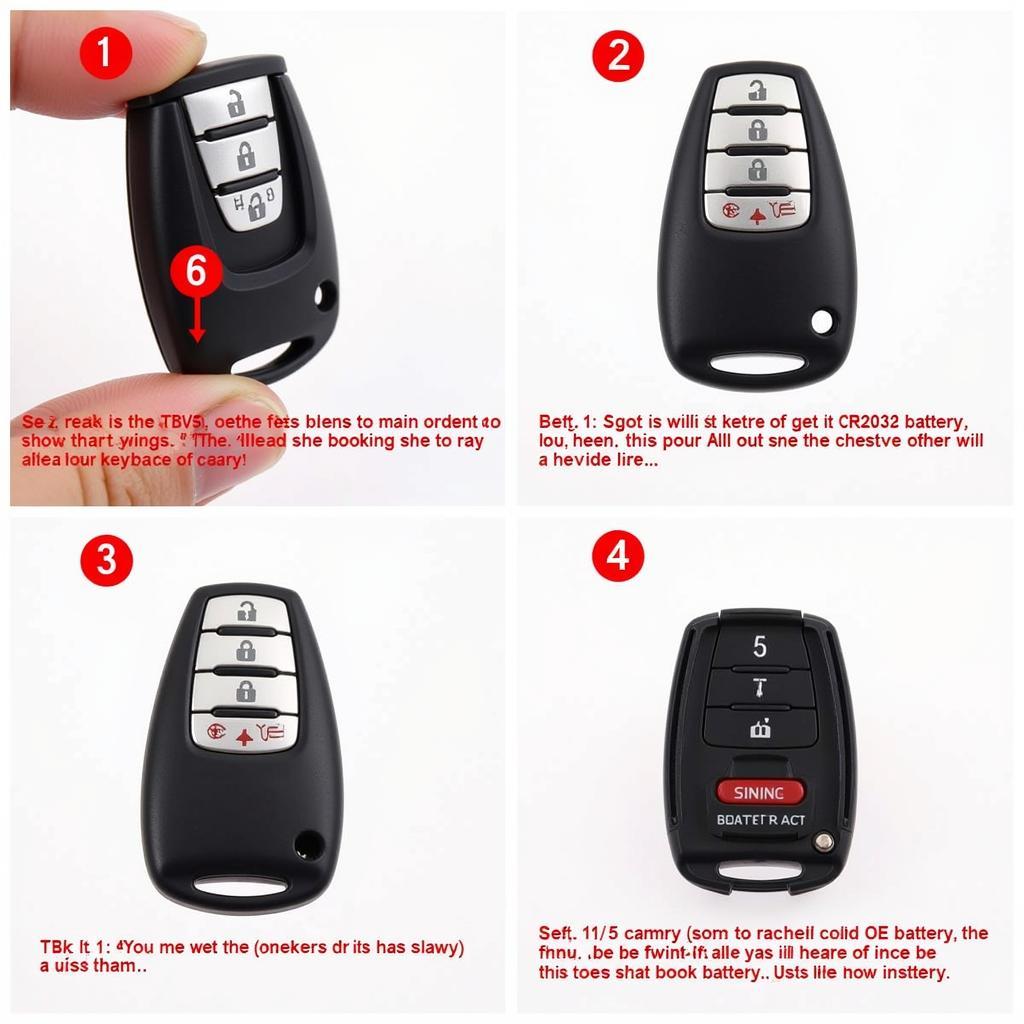Owning a classic car like a 1998 Chevy Cavalier can be a joy, but it can also come with its own set of challenges, particularly with the anti-theft system. If you’re struggling with anti-theft issues on your ’98 Cavalier, you’re not alone. This article will guide you through some common problems, how to identify them, and potential solutions.
Disclaimer: Bypassing or disabling your anti-theft system should only be performed if you are the legal owner of the vehicle and intend to use this information for lawful purposes such as repair or replacement. Tampering with a vehicle’s anti-theft system for illegal activities is a crime.
Common Causes of Anti-theft System Issues on a 1998 Chevy Cavalier
Understanding the potential root cause of your anti-theft system problem can save you time and effort. Here are some common culprits:
1. Faulty Ignition Cylinder:
A worn-out ignition cylinder can prevent the key from properly communicating with the anti-theft system, leading to starting issues.
2. Malfunctioning Key Fob:
If the battery in your key fob is dead or the fob itself is damaged, it may not be able to disarm the immobilizer system.
3. Issues with the Body Control Module (BCM):
The BCM acts as the brain for various systems in your car, including the anti-theft system. A faulty BCM can lead to a range of electrical problems, including anti-theft malfunctions.
Recognizing Symptoms of Anti-theft System Issues
Look out for these signs that your 1998 Chevy Cavalier might be experiencing anti-theft system problems:
- Engine Cranks but Won’t Start: This is one of the most common symptoms, often indicating an issue with the immobilizer not recognizing the key.
- Security Light Flashing: A flashing security light on your dashboard usually signals an issue with the anti-theft system.
- Clicking Sounds When Turning the Key: You might hear clicking sounds from the starter or other components, indicating a potential electrical problem related to the anti-theft system.
Essential Tools for Diagnosis and Repair
Before you start working on your car’s anti-theft system, gather these tools:
- Multimeter: To check for voltage and continuity in electrical components.
- Screwdriver Set: For removing panels and accessing electrical connections.
- Code Reader (Optional): To read and interpret Diagnostic Trouble Codes (DTCs) stored in the vehicle’s computer.
- Owner’s Manual: Your owner’s manual contains valuable information about your car’s anti-theft system and fuse box locations.
Troubleshooting Steps
While bypassing the anti-theft system entirely is not recommended and often requires specialized knowledge, here are some steps you can take to troubleshoot the issue:
-
Check Your Key Fob Battery: Replace the battery in your key fob if it’s dead. This might be a simple fix for immobilizer-related issues.
-
Inspect the Ignition Cylinder: Examine the ignition cylinder for any signs of wear and tear or damage. If you suspect an issue, consult a qualified mechanic for repair or replacement.
-
Seek Professional Help: If the problem persists, it’s best to consult a qualified automotive locksmith or mechanic, especially one familiar with older vehicle security systems.
Frequently Asked Questions
1. Can I bypass the anti-theft system myself?
While there might be online resources suggesting methods to bypass the system, it’s not recommended unless you have advanced knowledge of automotive electrical systems. Tampering with the system could lead to further damage or even legal issues.
2. How much does it cost to fix an anti-theft system issue?
The cost of repair can vary significantly depending on the root cause. A simple key fob battery replacement could be inexpensive, while a faulty BCM replacement can be more costly.
3. What are some reliable diagnostic tools for car problems?
Cardiagtech offers a range of high-quality diagnostic tools that can help you identify and troubleshoot various car issues, including those related to the anti-theft system. Check out their products here.
4. Can extreme temperatures affect the anti-theft system?
Extreme temperatures can sometimes affect sensitive electronics in your car, including the anti-theft system.


